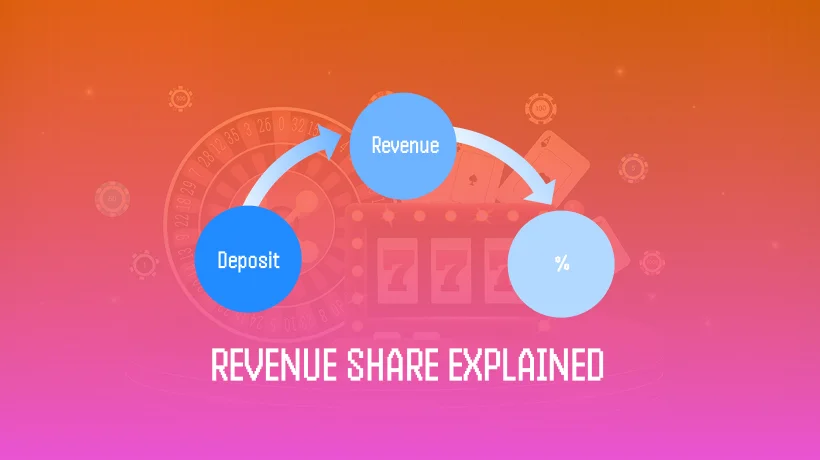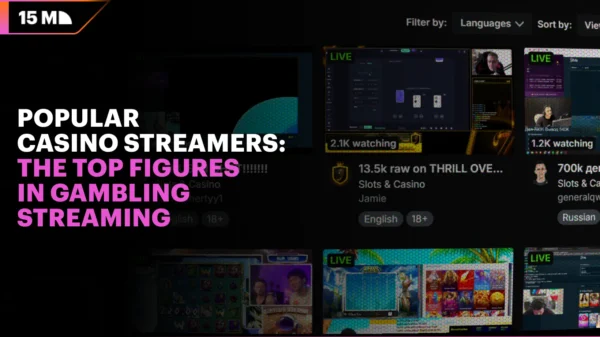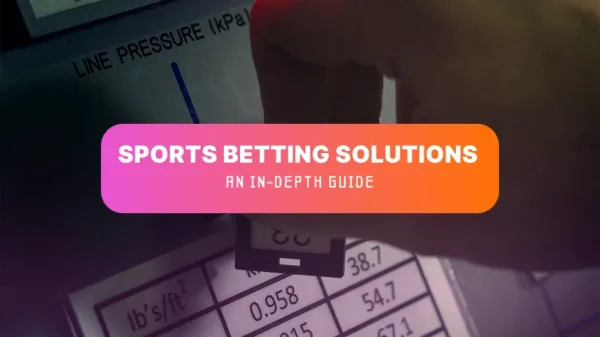Whether you’re exploring affiliate programs, considering a revenue-sharing deal, or simply want to understand how this model can benefit your business, this article will give you a clear and practical overview of the RevShare concept, its benefits, and potential risks.
What is RevShare?
RevShare, short for “Revenue Share,” is a partnership model where a business shares a percentage of its revenue with another party, typically a partner, affiliate, or service provider, in return for a referred action, such as delivering users or customers.
In the context of iGaming or affiliate marketing, the operator agrees to pay affiliates a percentage of the net revenue generated from users they refer. This agreement can vary by program, and the amount shared usually depends on the quality and value of traffic brought in.
RevShare stands out because it aligns both parties’ incentives: the more value the affiliate drives, the more they earn. It’s a model built for long-term cooperation and performance-based payouts.
How Does RevShare Function?
To initiate the RevShare process, an affiliate will promote an operator’s service through content, ads, or direct referrals. When a user interacts with the link via clicks, comments or sign-ups, the operator’s platform logs the affiliate as the referrer of the user.
When the user starts generating revenue for the operator via gambling losses or SaaS subscription fees, the affiliate then earns a percentage of that net income. These payments are issued monthly by operators based on user activity.
Here is a step-by-step breakdown of the RevShare model process:
- Attract: The affiliate drives traffic to the operator’s platform.
- Convert: The user registers and engages in revenue-generating behaviour.
- Track: The system tracks that user’s actions and ties them to the affiliate.
- Share: The platform calculates net revenue and pays the affiliate their cut.
The net revenue figure typically deducts refunds, bonuses and transaction fees so that affiliates are not paid based on gross spend. Instead, based on what the operator earns.
The income potential is dependent on a customer’s lifetime value. If a user is inactive, then no earnings are made. Therefore, it’s essential for operators and affiliates to be clear about targeting high-quality traffic, where the target audience of users is likely to have an interest in gambling.
What are the Pros and Cons of the RevShare Model?
RevShare offers benefits like sustainable income and long-term partnerships built on trust and mutual financial gain. However, earnings aren’t guaranteed – users may sign up but not spend, or win big while playing inconsistently. This creates a lose-lose situation for both operators and affiliates. A solid action plan is essential, with clear targets aligned to operators’ expectations for referred users’ spending.
Pros
- Ongoing passive income
- Higher lifetime value vs. CPA
- Stronger incentive alignment
Cons
- No earnings from inactive users
- Revenue volatility tied to user behaviour
- Potential for negative carryover
Affiliates also face the issue of delayed payments since revenue accumulates over time rather than arriving immediately. This creates difficulty when planning cash flow, particularly for new affiliates with capital reserves.
In brief, RevShare punishes inconsistency and rewards performance and consistency.
A Breakdown on Optimal RevShare
RevShare should be about rewarding an affiliate’s patience for consistently trying to convert users into players over a long duration.
With money from the affiliate’s efforts flowing in for operators over months or even years, the operator must ensure timely delivery of the affiliate’s earnings – the model is all about being trustworthy for sustained success for both parties.
The following table breaks down the contrast between RevShare and other common payout models:
| Model | When You Get Paid | Typical Risk | Income Ceiling | Best-Fit Industries |
|---|---|---|---|---|
| RevShare | Monthly on net revenue | Medium | High if users stay active | Gambling, SaaS |
| CPA | Up-front per signup | Low | Fixed | Fintech, e-commerce |
| Hybrid | Part CPA, part RevShare | Medium | Balanced | Gambling, subscriptions |
Where RevShare is Most Commonly Used
RevShare has become a go-to model in various sectors that all share similar business expectations, where customer value grows gradually over time. Some sectors include:
- SaaS: Affiliates earn a share of subscription fees as long as the user stays subscribed.
- Financial trading platforms: Revenue generated is often from spread fees or losses.
- E-learning and subscription services: Particularly where customer churn is low.
This is how different sectors deploying RevShare models compare:
| Industry | Typical RevShare % | Common Duration |
|---|---|---|
| Gambling | 30–50% | Up to 3 years |
| SaaS | 20–30% | Ongoing or capped |
| Finance/Trading | 10–25% | 6–24 months |
Operators Implementing a RevShare Strategy
A RevShare strategy begins with a structured approach that clearly outlines the pathway to your RevShare model and enables you to easily identify any potential drawbacks that can be mitigated. To begin:
- Research and preparation: Understand how the model works, available offers, and your strengths.
- Define your niche: Choose a focus — online casinos, sports betting, or poker.
- Select an offer source: Set affiliate requirements, define payout structures.
- Determine your traffic approach: SEO, Paid Ads, Social Media — each has pros/cons.
- Use a tracker to monitor and analyse performance metrics.
- A/B testing: Routinely test landing pages, creatives, and user segments to maximise lifetime value.
Risk Management and Sustainability in RevShare
With success not guaranteed, here’s how to mitigate risk and boost results:
- Understand hold periods: Plan for delays in commission payout.
- Track user behaviour: Identify drop-off points to optimise targeting.
- Diversify: Use multiple channels and offers to reduce dependency on one stream.
- Watch for negative carryover: Know your contract terms — some reset monthly, others don’t.
- Communicate: Stay in touch with affiliate managers to improve outcomes and get early access to better deals.
Sustainable RevShare income depends on diversification, data analysis, and adaptability to change.
Conclusion: Is RevShare for You?
RevShare is for operators who are willing to establish optimal conditions for affiliates to excel in the long term by adapting to necessary changes and understanding user behaviour.
Both operators and affiliates must exercise patience while income matures and collaborate to navigate the market through shared experimentation and strategy refinement.
If your platform lacks stability or is not performance-ready, consider fixing fundamentals before relying on RevShare. Otherwise, you risk attracting poor traffic and early churn.
RevShare isn’t just a commission model — it’s a long-term partnership. Operators who embrace its principles can unlock high-quality, sustained traffic and grow profitably with aligned affiliates.




